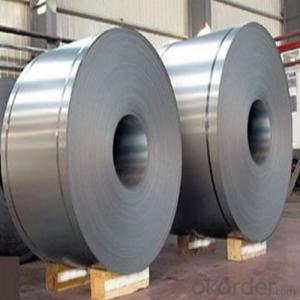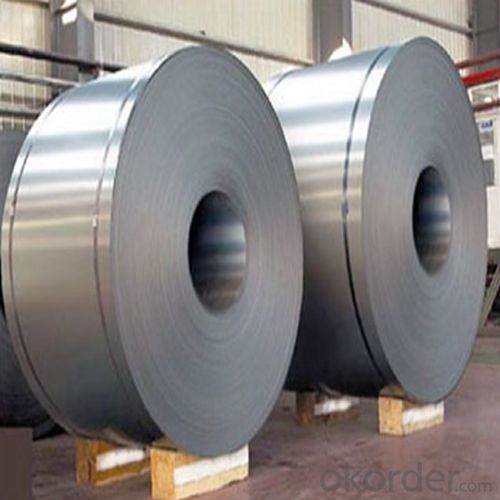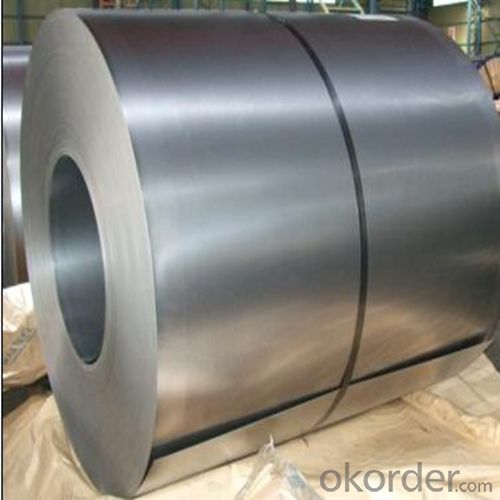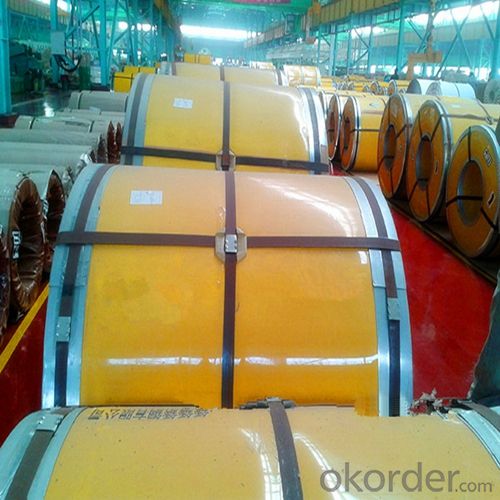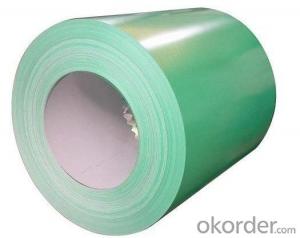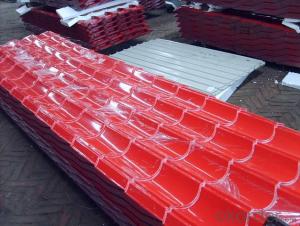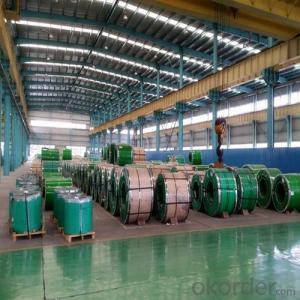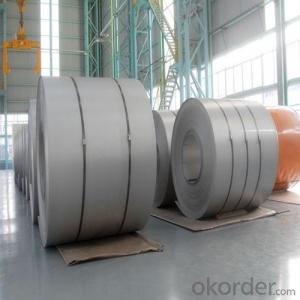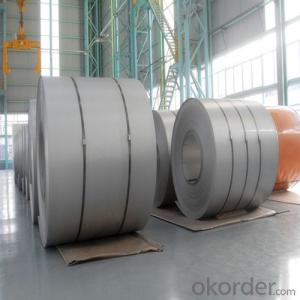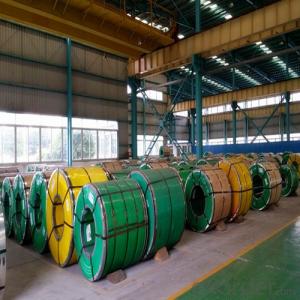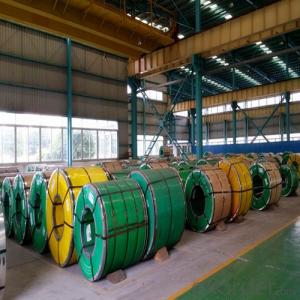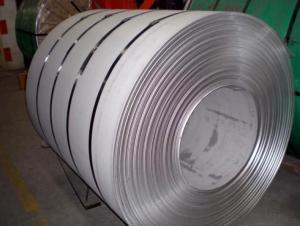Stainless Steel Coil in Hot Rolled Cold Rolled 0.3mm
- Loading Port:
- Guangzhou
- Payment Terms:
- TT OR LC
- Min Order Qty:
- 25 m.t.
- Supply Capability:
- 8000 m.t./month
OKorder Service Pledge
OKorder Financial Service
You Might Also Like
1.Structure of Stainless Steel Coil:
Stainless steel coil is a production which not easy rust, acid resistance and corrosion resistance, Stainless steel coil is a new kind of Austenite stainless steel by used Mn, N replace Ni. so it is widely used in light industry, heavy industry, daily necessities and the decoration industry. Stainless steel coil has good corrosion resistance and hot / cold processing performance, instead of stainless steel products for used in the not high of corrosive environment, such as indoor, inland city outdoor etc.
2.Main Features of the Stainless steel coil:
1) High Quality: Using Latest automated control equipment to ensure the quality
2) Best Price: With most automated equipments to ensure our price is lower than the market
3) Fast Delivery: The delivery date within 20 das after get your order
4) Best Service: Our after-sell service team will help you to slove all the problems about the order
3. Stainless steel coil Images
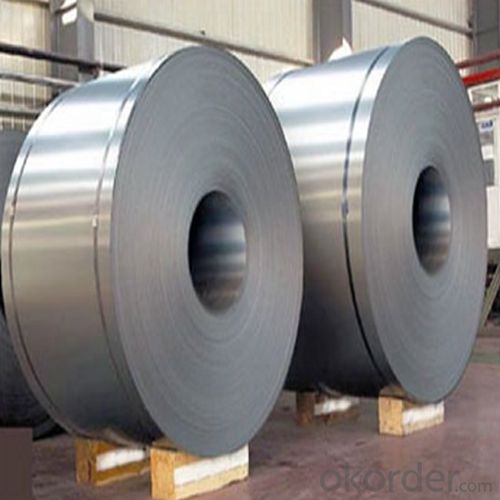
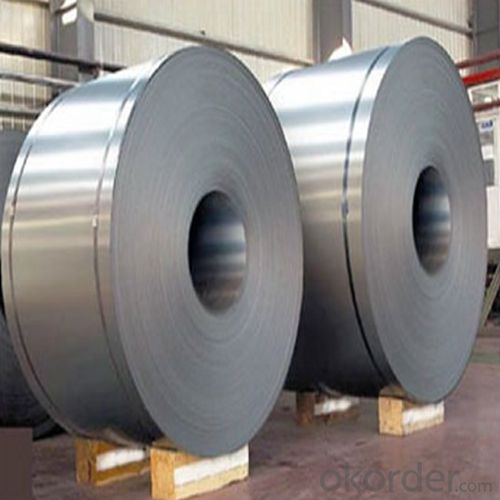
4. Stainless steel coil Specification
Product name: 304 Stainless Steel Coil
Thickness: 0.2mm to 1.5mm
Technical: Cold Rolled
Width: 10mm to 1240mm
Type: 200 Series
Length: As customer's requested
Standard: JIS, SUS
Finish: BA, 2B, 8K, NO.3, NO.4, HL
MOQ: 100 MT
Ship Term: FOB Shenzhen port or CNF import port
Delivery Time: 15 to 20 day after the receive the deposit or LC
Packaging: By wooden pallet, wooden case or according to customer's request
5.FAQ
We have organized several common questions for our clients,may help you sincerely:
1) How about your company?
2) A world class manufacturer & supplier of castings forging in carbon steel and alloy steel,is one of the large-scale professional investment casting production bases in China,consisting of both casting foundry forging and machining factory. Annually more than 8000 tons Precision casting and forging parts are exported to markets in Europe,America and Japan. OEM casting and forging service available according to customer’s requirements.
3) How to guarantee the quality of the products?
4) We have established the international advanced quality management system,every link from raw material to final product we have strict quality test;We resolutely put an end to unqualified products flowing into the market. At the same time, we will provide necessary follow-up service assurance.
5) How long can we receive the product after purchase?
6) In the purchase of product within three working days, We will arrange the factory delivery as soon as possible. The pecific time of receiving is related to the state and position of customers.Commonly 7 to 10 working days can be served.
- Q: How are steel coils used in the manufacturing of hydraulic cylinders?
- Steel coils are used in the manufacturing of hydraulic cylinders as they provide the necessary strength and durability required for the functioning of these cylinders. The coils are typically rolled and shaped into the desired cylindrical form, which serves as the outer body of the hydraulic cylinder. The steel coils are then further processed and assembled with other components to create a sealed chamber, where hydraulic fluid is pressurized to generate mechanical force. Overall, steel coils play a crucial role in ensuring the structural integrity and performance of hydraulic cylinders.
- Q: Are steel coils used in the aerospace industry?
- Yes, steel coils are used in the aerospace industry. They are often utilized in the manufacturing and assembly of various aircraft components such as engines, frames, and landing gears. Steel coils provide strength, durability, and resistance to high temperatures, making them suitable for aerospace applications.
- Q: What are the common manufacturing defects in steel coils?
- There are several common manufacturing defects that can occur in steel coils, including surface imperfections such as scratches, pits, or dents, dimensional inconsistencies such as uneven thickness or width, edge defects like burrs or cracks, and internal defects such as inclusions or voids. These defects can impact the quality and performance of the steel coils, and manufacturers strive to minimize these issues through quality control measures and inspections.
- Q: What are the environmental considerations of using steel coils?
- There are several environmental considerations associated with using steel coils. Firstly, the production of steel coils requires a significant amount of energy and raw materials, which can contribute to greenhouse gas emissions and environmental degradation. Additionally, the extraction and processing of iron ore for steel production can have negative impacts on land, water, and air quality. Moreover, the transportation of steel coils, especially over long distances, can result in emissions from vehicles and contribute to pollution. Lastly, the disposal of steel coils at the end of their lifecycle poses challenges as they can be difficult to recycle and may end up in landfills, further contributing to waste accumulation. Overall, the environmental implications of using steel coils highlight the need for sustainable practices in their production, transportation, and disposal.
- Q: How are steel coils used in the manufacturing of steel drums?
- Steel coils are used in the manufacturing of steel drums as they are cut into the desired size and shape to form the body of the drum. The coils are unrolled and bent into a cylindrical shape, which is then welded together to create a seamless drum. This process allows for efficient and cost-effective production of steel drums, ensuring durability and strength in the final product.
- Q: I wanted to get a cheapo ring and I found one I like, but it's stainless steel. Is that bad? Will it get dull and tarnished fast?
- a lot of people that do a lot of manual labor with their hands prefer stainless steel because it can withstand potential damage on the job.
- Q: What are the common methods of protecting steel coils from corrosion during storage?
- There are several common methods used to protect steel coils from corrosion during storage. These methods are employed to prevent moisture and other environmental elements from coming into contact with the steel coils, which can lead to corrosion. 1. VCI (Volatile Corrosion Inhibitor) Packaging: VCI packaging is a widely used method for protecting steel coils. VCI materials are incorporated into the packaging, such as plastic bags or films, which release a vapor that forms a protective layer on the surface of the steel coils. This layer prevents moisture and other corrosive agents from reaching the steel, thus inhibiting corrosion. 2. Oil Coating: Another widely used method is to apply a thin layer of oil on the surface of the steel coils. The oil acts as a barrier, preventing moisture and oxygen from coming into contact with the steel. This method is particularly effective for long-term storage or transportation of steel coils. 3. Desiccants: Desiccants, such as silica gel packets, can be placed inside the packaging to absorb any moisture that may be present. By reducing the humidity levels inside the packaging, the risk of corrosion is minimized. This method is often used in conjunction with VCI packaging or oil coating. 4. Proper Ventilation: Adequate ventilation is necessary to prevent the accumulation of moisture around the steel coils during storage. By allowing air to circulate freely, it helps to reduce the humidity levels and prevents the formation of condensation, which can lead to corrosion. 5. Controlled Environment: Storing steel coils in a controlled environment can be an effective way to prevent corrosion. This involves maintaining a constant temperature and humidity level, which are not conducive to corrosion. Temperature and humidity control can be achieved through the use of air conditioning or dehumidification systems. It is important to note that the specific method or combination of methods used to protect steel coils will depend on various factors, such as the duration of storage, the environmental conditions, and the specific requirements of the steel coils. Regular inspections and maintenance are also crucial to ensure the ongoing protection of the steel coils from corrosion.
- Q: How are steel coils inspected for straightness?
- Steel coils are typically inspected for straightness using various methods such as visual inspection, laser measurement, or by passing the coils through straightening equipment.
- Q: How do steel coil manufacturers manage inventory?
- Steel coil manufacturers manage inventory through various strategies and techniques to optimize production, minimize costs, and meet customer demands. Here are some common practices employed by steel coil manufacturers to effectively manage their inventory: 1. Demand forecasting: Steel coil manufacturers analyze market trends, historical sales data, and customer orders to forecast future demand accurately. This helps them determine the required inventory levels and plan production accordingly. 2. Just-in-time (JIT) inventory: Many steel coil manufacturers follow the JIT inventory system, where they maintain minimal inventory levels by receiving raw materials shortly before production and delivering finished goods immediately after production. This approach minimizes carrying costs and reduces the risk of excess inventory. 3. Supplier collaboration: Close collaboration with suppliers is crucial to manage inventory effectively. Steel coil manufacturers work closely with their suppliers to ensure timely delivery of raw materials, monitor quality, and maintain consistent supply. Regular communication and sharing of production forecasts help suppliers plan their inventory accordingly. 4. Safety stock: Steel coil manufacturers maintain a certain level of safety stock to account for unpredictable fluctuations in demand, supply chain disruptions, or delays in raw material deliveries. This acts as a buffer to avoid stockouts and maintain customer satisfaction. 5. Inventory control systems: Implementing modern inventory control systems, such as Enterprise Resource Planning (ERP) software, allows steel coil manufacturers to track inventory levels, monitor stock movements, and automate various inventory management processes. These systems provide real-time data and analytics, enabling better decision-making and improved inventory accuracy. 6. Efficient production planning: Steel coil manufacturers optimize production planning to minimize inventory holding costs. They schedule production based on demand forecasts, prioritize orders, and aim for efficient production runs to reduce setup times and material wastage. 7. Regular inventory analytics: Steel coil manufacturers regularly analyze their inventory data to identify slow-moving items, obsolete stock, or excess inventory. By identifying such issues, they can take corrective actions like offering discounts, initiating sales promotions, or adjusting production schedules to prevent inventory buildup. Overall, effective inventory management is crucial for steel coil manufacturers to maintain a lean and efficient operation while meeting customer demands. By applying these strategies, manufacturers can strike a balance between supply and demand, reduce costs, and improve customer satisfaction.
- Q: What is the average flatness tolerance for steel coils?
- The average flatness tolerance for steel coils typically ranges between 0.25% and 0.5% of the coil's width.
Send your message to us
Stainless Steel Coil in Hot Rolled Cold Rolled 0.3mm
- Loading Port:
- Guangzhou
- Payment Terms:
- TT OR LC
- Min Order Qty:
- 25 m.t.
- Supply Capability:
- 8000 m.t./month
OKorder Service Pledge
OKorder Financial Service
Similar products
Hot products
Hot Searches
Related keywords
